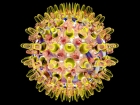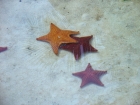Press monitoring
Synthetic immune protein rallies the troops to fight cancer
26.6.2020 | Press monitoring
Immunotherapy is a promising potential treatment for cancer, but it still has kinks to iron out. In a new study from Yale, researchers have identified a “jamming signal” that cancer uses to hide from the immune system – and importantly, engineered a synthetic immune cell that can fight back. The natural version of this immune cell is called...
Nanosponges could intercept SARS-CoV-2 coronavirus infection
24.6.2020 | Press monitoring
Nanoparticles cloaked in human lung cell membranes and human immune cell membranes can attract and neutralize the SARS-CoV-2 virus in cell culture, causing the virus to lose its ability to hijack host cells and reproduce. The "nanosponges" were developed by engineers at the University of California San Diego and tested by researchers at Boston...
Scientists discover new Death Star weakness in bacterial biofilms
22.6.2020 | Press monitoring
On their own, bacteria aren’t too hard to kill, but get enough of them together and they build protective communities called biofilms. These make it tough to get antibiotics in, leading to further health problems. But now, researchers have found a new weakness in biofilms that could be exploited. Biofilms are slimy coatings that grow on surfaces...
Synthetic fungal compound activates cancers self-destruct switch
19.6.2020 | Press monitoring
All cells in the human body have a shelf-life, but those of the cancerous variety use some cunning trickery to outlive their expiry dates and continue spreading throughout the body. Scientists at the University of Tokyo have developed a synthetic version of a fungal compound that could help swing things back in our favor, by reactivating a...
Stem cell-loaded microneedles speed up wound healing
17.6.2020 | Press monitoring
Stem cells are powerful tools that could one day unlock new frontiers in regenerative medicine. Now, a new study has shown that a certain type of stem cell can be delivered into injured tissues with dissolvable microneedles, to heal wounds. Mesenchymal stem cells (MSCs) are responsible for replenishing bone, cartilage, muscle and fat cells in the...
Crop pathogens remarkably adaptable
15.6.2020 | Press monitoring
Pathogens that attack agricultural crops show remarkable adaptability to new climates and new plant hosts, new research shows. Researchers at the Department of Biosciences, University of Exeter studied the temperature preferences and host plant diversity of hundreds of fungi and oomycetes that attack our crops. The researchers found that plant...
Using light to speed up CRISPR-Cas9 gene editing
12.6.2020 | Press monitoring
A team of researchers at Johns Hopkins University has developed a way to speed up the CRISPR-Cas9 gene-editing process by using light-sensitive nucleotides. With CRISPR-Cas9 gene editing, the enzyme Cas9 is used as scissors to cut strands of DNA at specific spots for editing. A guide RNA molecule is used during editing to help the Cas9 enzyme...
Taking a deep look into animals
10.6.2020 | Press monitoring
Advances in neuroscience research and microscopy: a collaborative project driven by researchers of the Max Perutz Labs Vienna, a joint venture of the University of Vienna and the Medical University of Vienna, and the TU Wien (Vienna) allows researchers to look deep into organs and nervous systems of animals, ranging from squids and worms to fish...
Researchers develop experimental rapid COVID-19 test using nanoparticle technique
8.6.2020 | Press monitoring
Scientists from the University of Maryland School of Medicine (UMSOM) developed an experimental diagnostic test for COVID-19 that can visually detect the presence of the virus in 10 minutes. It uses a simple assay containing plasmonic gold nanoparticles to detect a color change when the virus is present. The test does not require the use of any...
Researchers control cattle microbiomes to reduce methane and greenhouse gases
5.6.2020 | Press monitoring
Ben-Gurion University of the Negev (BGU) researchers have learned to control the microbiome of cattle for the first time which could inhibit their methane production, and therefore reduce a major source of greenhouse gasses. The findings from Prof. Itzhak Mizrahi's findings were published recently in Nature Communications. The animal microbiome...





























